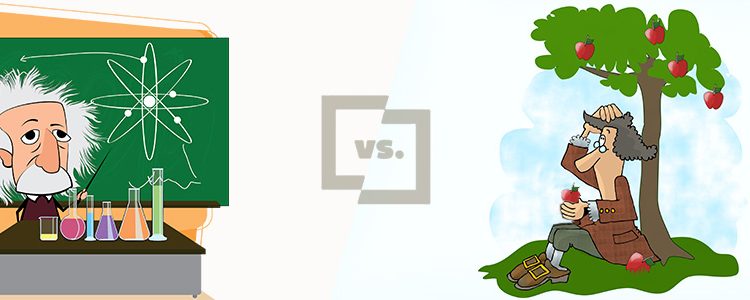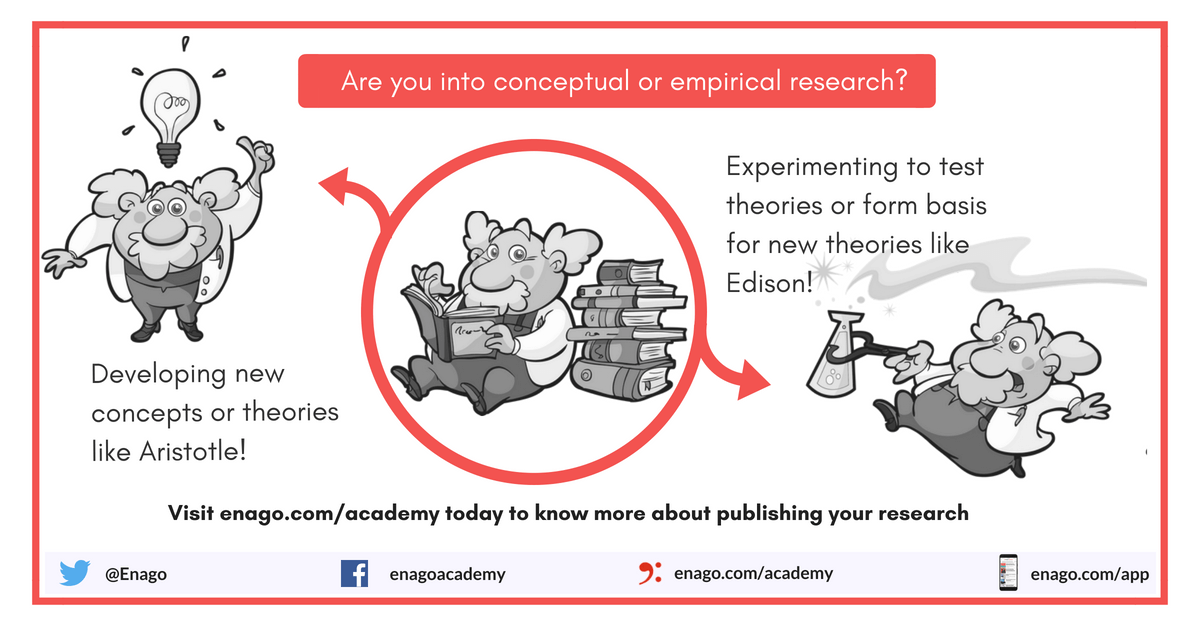Conceptual Vs. Empirical Research: Which Is Better?

Scientific research is often divided into two classes: conceptual research and empirical research. There used to be distinct ways of doing research and a researcher would proudly claim to be one or the other, praising his method and scorning the alternative. Today the distinction is not so clear.
What is Conceptual Research?
Conceptual research focuses on the concept or theory that explains or describes the phenomenon being studied. What causes disease? How can we describe the motions of the planets? What are the building blocks of matter? The conceptual researcher sits at his desk with pen in hand and tries to solve these problems by thinking about them. He does no experiments but may make use of observations by others, since this is the mass of data that he is trying to make sense of. Until fairly recently, conceptual research methodology was considered the most honorable form of research—it required using the brain, not the hands. Researchers such as the alchemists who did experiments were considered little better than blacksmiths—“filthy empiricists.”
What is Empirical Research?
For all of their lofty status, conceptual researchers regularly produced theories that were wrong. Aristotle taught that large cannonballs fell to earth faster than small ones, and many generations of professors repeated his teachings until Galileo proved them wrong. Galileo was an empiricist of the best sort, one who performed original experiments not merely to destroy old theories but to provide the basis for new theories. A reaction against the ivory tower theoreticians culminated in those who claimed to have no use for theory, arguing that empirical acquisition of knowledge was the only way to the truth. A pure empiricist would simply graph data and see if he got a straight line relation between variables. If so, he had a good “empirical” relationship that would make useful predictions. The theory behind the correlation was irrelevant.

The Scientific Method: A Bit of Both
The modern scientific method is really a combination of empirical and conceptual research. Using known experimental data a scientist formulates a working hypothesis to explain some aspect of nature. He then performs new experiments designed to test predictions of the theory, to support it or disprove it. Einstein is often cited as an example of a conceptual researcher, but he based his theories on experimental observations and proposed experiments, real and thought, which would test his theories. On the other hand, Edison is often considered an empiricist, the “Edisonian method” being a by-word for trial and error. But Edison appreciated the work of theorists and hired some of the best. Random screening of myriad possibilities is still valuable: pharmaceutical companies looking for new drugs do this, sometimes with great success. Personally, I tend to be a semi-empiricist. In graduate school I used the Hammett linear free-energy relation (a semi-empirical equation) to gain insight into chemical transition states. So I don’t debate on “conceptual vs. empirical research.” There is a range of possibilities between both the forms, all of which have their uses.








Excellent explanations in a simple language.
Thank you!
Greeting from Enago Academy! Thank you for your positive comment. We are glad to know that you found our resources useful. Your feedback is very valuable to us. Happy reading!
nice
Greeting from Enago Academy! Thank you for your positive comment. We are glad to know that you found our resources useful. Your feedback is very valuable to us. Happy reading!
Thanks for this article,really helpful
university of zambia
helpful!
Albert Einstein did theoretical work–he had no laboratory, Put simply, through new conceptual models, he re-interpreted the findings of others and expressed them mathematically.